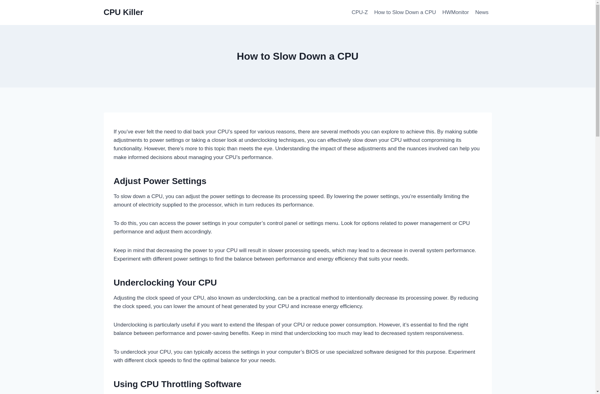SuperPI

SuperPI: High Performance Pi Calculator
A fast and efficient program for calculating pi to a specified number of digits, utilizing Gauss-Legendre algorithms and optimized for benchmarking processor performance.
What is SuperPI?
SuperPI is a lightweight application designed specifically for calculating digits of pi. It uses Gauss-Legendre algorithms, which iterate approximating pi progressively to higher degrees of accuracy. SuperPI implementations are heavily optimized to perform these pi calculations as quickly as possible.
Although SuperPI has the very narrow focus of pi digit computation, its small size and single-threaded nature make it popular for benchmarking processors and overclocked systems. Running SuperPI and timing how long it takes to calculate a certain number of pi digits has become a standard benchmark test in forums and communities focused on computer hardware, overclocking, and performance tuning.
During the benchmark, SuperPI intensely exercises the CPU and memory subsystem. It scales very well with CPU clock speeds, cache sizes, RAM speeds and timings. This makes SuperPI an effective stress test tool for stability testing overclocked processors, memory, motherboards, and related components. In leaderboards tracking SuperPI benchmark results, faster completion times equate directly to higher performance.
While modern multi-threaded applications aren't strongly influenced by SuperPI results, its historical ubiquity as a benchmark ensures it remains popular for comparing hardware capabilities. It provides a simple, repeatable single-threaded workload for quantifying the performance impact of overclocking attempts or component changes.
SuperPI Features
Features
- Calculates pi to a specified number of digits
- Optimized for calculating pi quickly
- Uses Gauss-Legendre algorithms
- Benchmarks processor performance
Pricing
- Freeware
Pros
Cons
Official Links
Reviews & Ratings
Login to ReviewThe Best SuperPI Alternatives
Top System & Hardware and Benchmarking and other similar apps like SuperPI
Here are some alternatives to SuperPI:
Suggest an alternative ❐AIDA64

Linpack Xtreme

System Stability Tester

OCCT

Cpukiller

Prime95

StressMyPC
